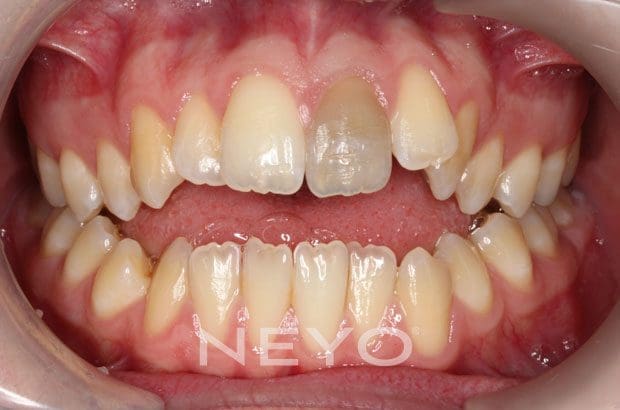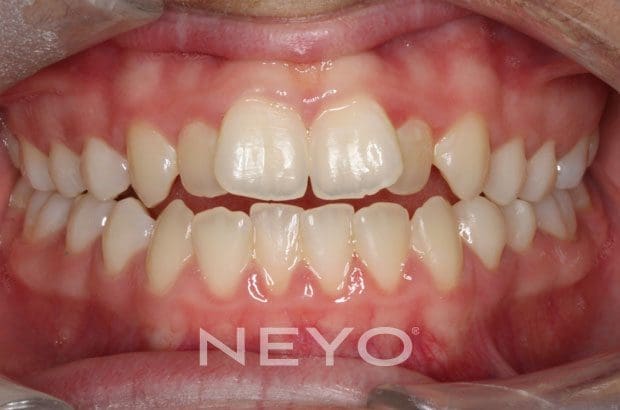An open bite describes a situation where the upper teeth and lower teeth do not meet when you bite together. If this occurs at the front of the mouth, it is called an anterior open bite. A lateral open bite is where the side teeth do not meet on biting.
It is possible to tell if someone has an open bite by asking them to bite down fully on the back teeth. If the any of the teeth don’t meet, and you can see through to the tongue even when they are biting down, then there is an open bite.
Open bites can cause problems with speech and with eating. People with anterior open bites open report problems biting into sandwiches and other foods. It is also very common for people with anterior open bites to have a lisp as it can be very difficult to form a seal when making the ‘s’ sound.
There are several treatment options available to correct open bites, however the choice of treatment will be determined by identifying the cause of the open bite and assessing the severity.
What causes open bites?
In young children, an open bite is a very common sign of dummy sucking or thumb sucking. Thumb sucking can also increase the overbite and narrow the palate. The good news is that early cessation of the habit will usually allow spontaneous correction of the open bite.
Sometimes an open bite can develop if the resting position of the tongue lies between the front teeth, preventing these teeth from fully erupting. This is also the case with a tongue thrust which is where the tongue moves forward when swallowing.
The cause of the open bite may also be caused by the shape and position of the underlying jaw bones, which can make treatment more complicated.
What happen if you don’t treat an open bite?
People with open bites report problems biting into things and lisping when speaking. Without treatment, these problems will persist. Although there is no clear evidence to suggest that open bites cause damage to the teeth, it is logical to assume that the teeth that are in contact on biting are under more pressure and subject to greater forces as there are fewer teeth in contact to spread the load.
What can be done to correct an open bite?
Open bites can be quite tricky to correct, and there is always a risk that if corrected, an open bite will reopen again in the future.
The treatment that you will be recommended will largely depend on what cause the open bite in the first place. For more severe cases, a combination of braces and jaw surgery may be the only way to correct an open bite.
Invisalign has shown to be very effective in reducing open bites and is often our preferred choice of appliance, because fixed train track braces can sometimes make an open bite worse.
After your initial assessment, your specialist orthodontist will talk you through all the available options.
At what age should open bites be treated?
Ideally, an open bite will be identified in young children, so the cause can be determined, and early interceptive treatment prescribed if required. For young children who regularly suck their thumb or finger, it is imperative that this habit is stopped as early as possible to avoid longer term problems.
If surgery is required to correct the open bite, we will need to wait until all the growing has finished, and we know the full extent of the open bite. Typically, treatment is delayed until around the age of 18.
Treatment options also exist for adults with open bites, and we will always try to find a solution that works for you.







